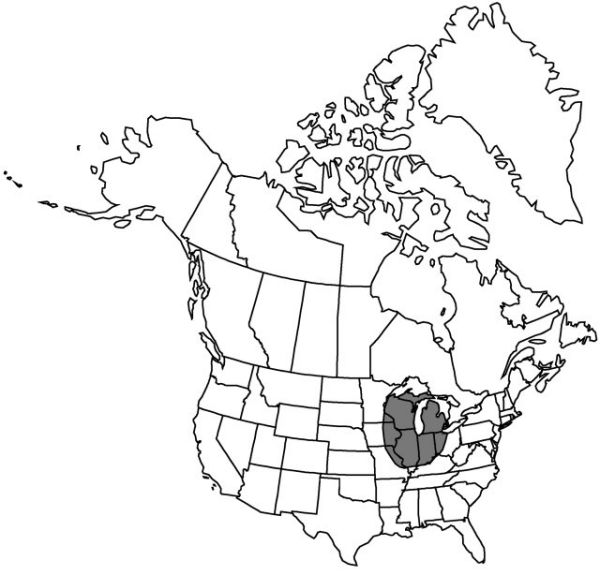Difference between revisions of "Smilax illinoensis"
Rhodora 70: 263, fig. 25A. 1968.
imported>Volume Importer |
imported>Volume Importer |
||
| Line 50: | Line 50: | ||
|publication year=1968 | |publication year=1968 | ||
|special status=Endemic | |special status=Endemic | ||
| − | |source xml=https:// | + | |source xml=https://bitbucket.org/aafc-mbb/fna-data-curation/src/2e0870ddd59836b60bcf96646a41e87ea5a5943a/coarse_grained_fna_xml/V26/V26_989.xml |
|genus=Smilax | |genus=Smilax | ||
|species=Smilax illinoensis | |species=Smilax illinoensis | ||
Latest revision as of 22:18, 5 November 2020
Herbs. Stems annual, erect, unbranched, 0.5–1 m, herbaceous; prickles absent. Leaves numerous, evenly distributed, larger distally; petiole thin, equaling or longer than blade; tendrils distal, few, short; blade narrowly ovate, pubescent and not glaucous abaxially, base rounded to truncate, margins convex, apex acute to acuminate. Umbels 3–10, axillary to leaves and bracts, 10–50-flowered, semiglobose; proximalmost peduncle longer than distalmost. Flowers: tepals 3.5–4.5 mm; anthers usually shorter than filaments; ovules (1–)2 per locule. Berries blue to black, globose. 2n = 26.
Phenology: Flowering May–Jun.
Habitat: Roadside thickets, woods
Elevation: 150–600 m
Distribution

Ont., Ill., Ind., Iowa, Mich., Minn., Mo., Ohio, Wis.
Discussion
Smilax illinoensis is intermediate between S. ecirrhata and S. lasioneura.
Selected References
None.